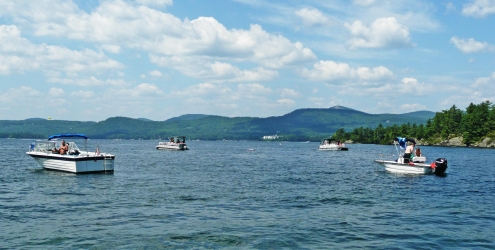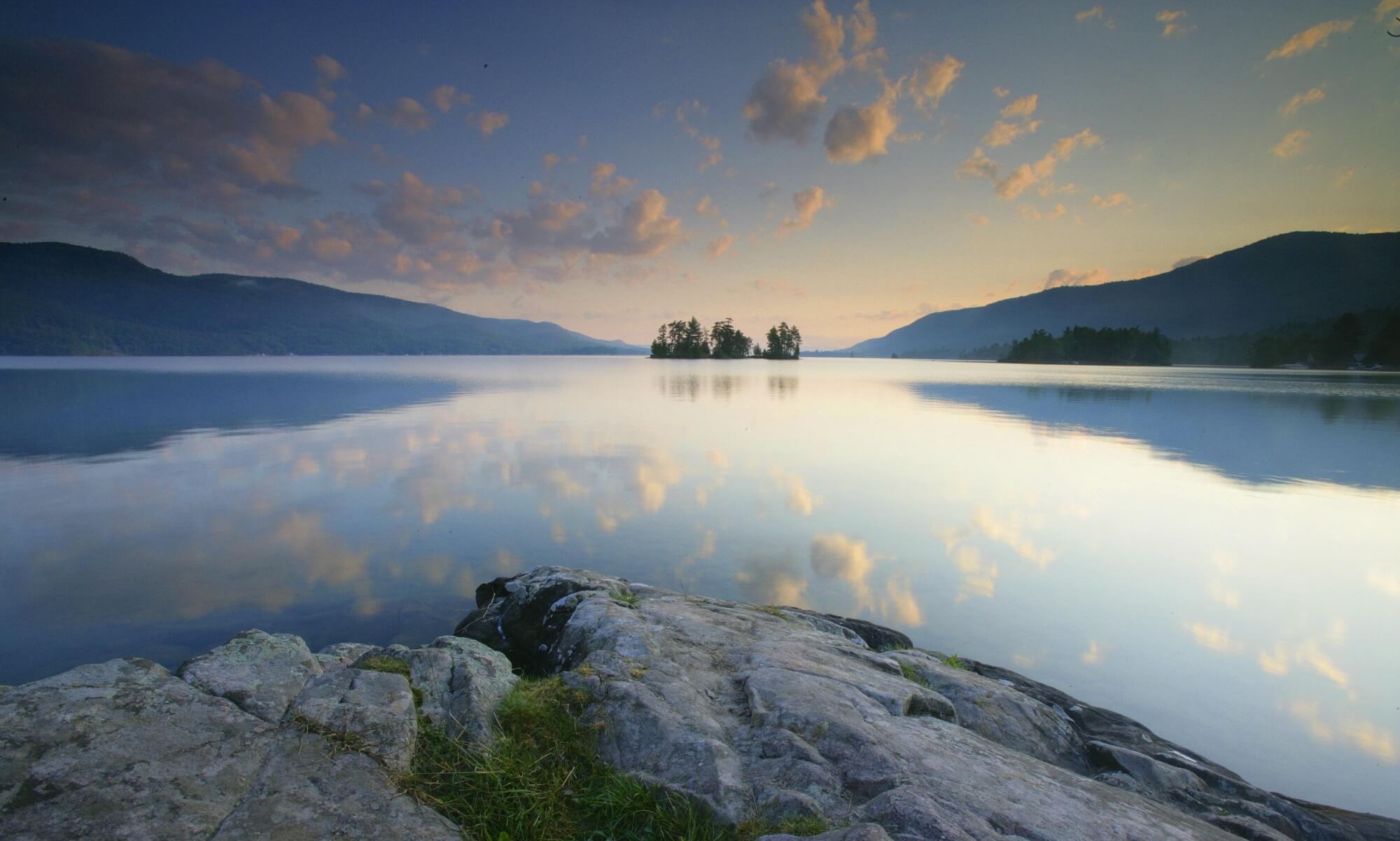
Boaters enjoy Lake George.
The Lake George Association is partnering with the Lake George Park Commission (LGPC) for a 2015 Recreation Study of the Lake. This project will be an update to the 2005 Recreation Study that was completed now a decade ago, and will provide a better understanding of the current conditions on the Lake in order to more effectively manage the lake, promote public access, and reduce congestion, overcrowding and safety hazards.
“The Commission looks forward to undertaking a comprehensive review of recreation uses on Lake George in 2015. By better understanding public use patterns, the Commission can be more fully prepared to serve the public with boating safety operations and long-term lake protection initiatives. We thank the Lake George Association for their generous financial contribution towards this important project,” said Bruce Young, Chairman of the Lake George Park Commission.
At the July meeting of the LGA’s Board of Directors, members approved a motion to fund half of the cost of the study, up to $25,000. “The Lake George Association’s Recreation Committee has met with LGPC staff and commissioners over the years to stay abreast of recreation-related issues on the Lake and feel that this is a very important study,” said Mike Dier, LGA’s Vice President of the Board of Directors and a long-standing member of the Water Recreation Committee. “We have a long history of working with partners on recreational issues on the lake. In 2008 we worked with the Lake George Power Squadron to update the navigational charts of the lake using our geographic information systems (GIS) database and we have offered numerous boater safety courses at our office over the years as well as printing an educational boater safety brochure,” said Dier.
A request for qualifications has been released by the LGPC and proposals are due at the beginning of next week by September 15. Planning work for this project is intended to be undertaken this upcoming winter with field work and data collection for this project anticipated for next summer. The final report would be complete by the end of 2015.
Just like in 2005, the updated 2015 Recreation Study will provide an overview of the type, intensity, distribution and timing of boating on Lake George based on the 2014 field season. Surveys of various user groups such as boaters, beach users, business owners, tourists, etc, will also be conducted to gather information regarding perceptions of use and enjoyment of the lake. Analysis and summary of LGPC data including Marine Patrol contacts and enforcement, dock permit trends, and marina permit trends will also be included in the report. And ideally the final report will be able to show new data trends and changes from findings in 2005 Recreation Study.
The 2005 study found 460,372 total boat use days from April-Sept with 44,177 motorboat launches and 75,835 public beach users estimated for 2005. The average horsepower on the lake was 194 while the average horsepower of performance boats was 500. During peak use, there were 261 PWCs, 303 canoes/kayaks, 317 sailboats, and 1,553 motorboats, for a grand total of 2,434 boats out on the Lake at one time at peak use. However, over the course of an entire weekend day during the summer – there were 4,700 motorboats on the Lake, and 2,500 motorboats on a weekday. It will be interesting to see how these numbers compare now ten years later.
In addition to the data collected through observation, survey data found that over ninety percent of respondents were satisfied or very satisfied with their Lake George recreational experience. High water quality contributed most to that satisfaction and water quality was very important to the majority of users. The main issues of concern identified during the surveys were invasive species, followed by noise from PWCs and unsafe operation of boats. “It will be very interesting to see how the new results compare to these findings from 2005, said Walt Lender, the LGA’s Executive Director. With the increased attention to invasive species recently, I for one am curious to see if this concern is more prominent in the updated study. It will also be very interesting to learn how lake users perceive the water quality of the lake as well. It’s one thing for those of us who think about it day in and day out, but it will be very useful to get a good idea of how a large group of lake users view the quality of the water.”
